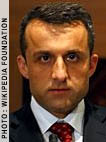Afghans expel 10 Chinese spies who allegedly made contact with pro-Taliban group
January 5, 2021 2 Comments
 The Afghan government reportedly expelled from the country 10 Chinese intelligence officers on Saturday, after they were found to have contacts with pro-Taliban groups. Meanwhile the White House was recently briefed about claims that Beijing offered Afghan militants bounties for killing American soldiers.
The Afghan government reportedly expelled from the country 10 Chinese intelligence officers on Saturday, after they were found to have contacts with pro-Taliban groups. Meanwhile the White House was recently briefed about claims that Beijing offered Afghan militants bounties for killing American soldiers.
Several Indian news agencies reported last month that Afghanistan’s National Directorate of Security (NDS) arrested 10 Chinese nationals in Kabul on December 10, on suspicion of espionage. The 10 Chinese included at least one woman, and were believed to work for the Ministry of State Security (MSS), China’s primary intelligence agency.
According to reports in the Indian press, the Chinese nationals had used Kabul as a base to buld a fictitious chapter of the East Turkestan Islamic Movement (ETIM). Based in China’s heavily Muslim Xinjiang Province, ETIM is a sepratist armed group, which seeks to create an Islamic breakaway state for ethnic Uighurs. The purpose of the ruse was reportedly to entrap ETIM supporters and members who were operating in Afghanistan.
It is also alleged that at least two of the Chinese spies had contacts with the Haqqani network, a militant group that has pledged allegiance to the leadership of the Taliban, but maintains an independent command structure. Indian news networks named the two Chinese alleged spies with Haqqani Network contacts as Li Yangyang and Sha Hung. Interestingly, the arrests of the 10 Chinese nationals took place shortly before United States President Donald Trump was reportedly briefed about contacts between the MSS and pro-Taliban groups in Afghanistan. According to Axios, US intelligence agencies told the president that Chinese spies had offered Afghan militants bounty in exchange for killing American troops.
Citing “diplomats and security officials in Kabul” who are “familiar with the matter”, The Hindustan Times reported on Monday that the ten Chinese nationals had been released after 23 days in detention. They boarded a chartered airplane heading for China on Saturday, said the paper. None were formally charged. Their release was reportedly ordered by Afghan President Ashraf Ghani, following direct negotiations with Beijing.
► Author: Joseph Fitsanakis | Date: 05 January 2021 | Permalink











